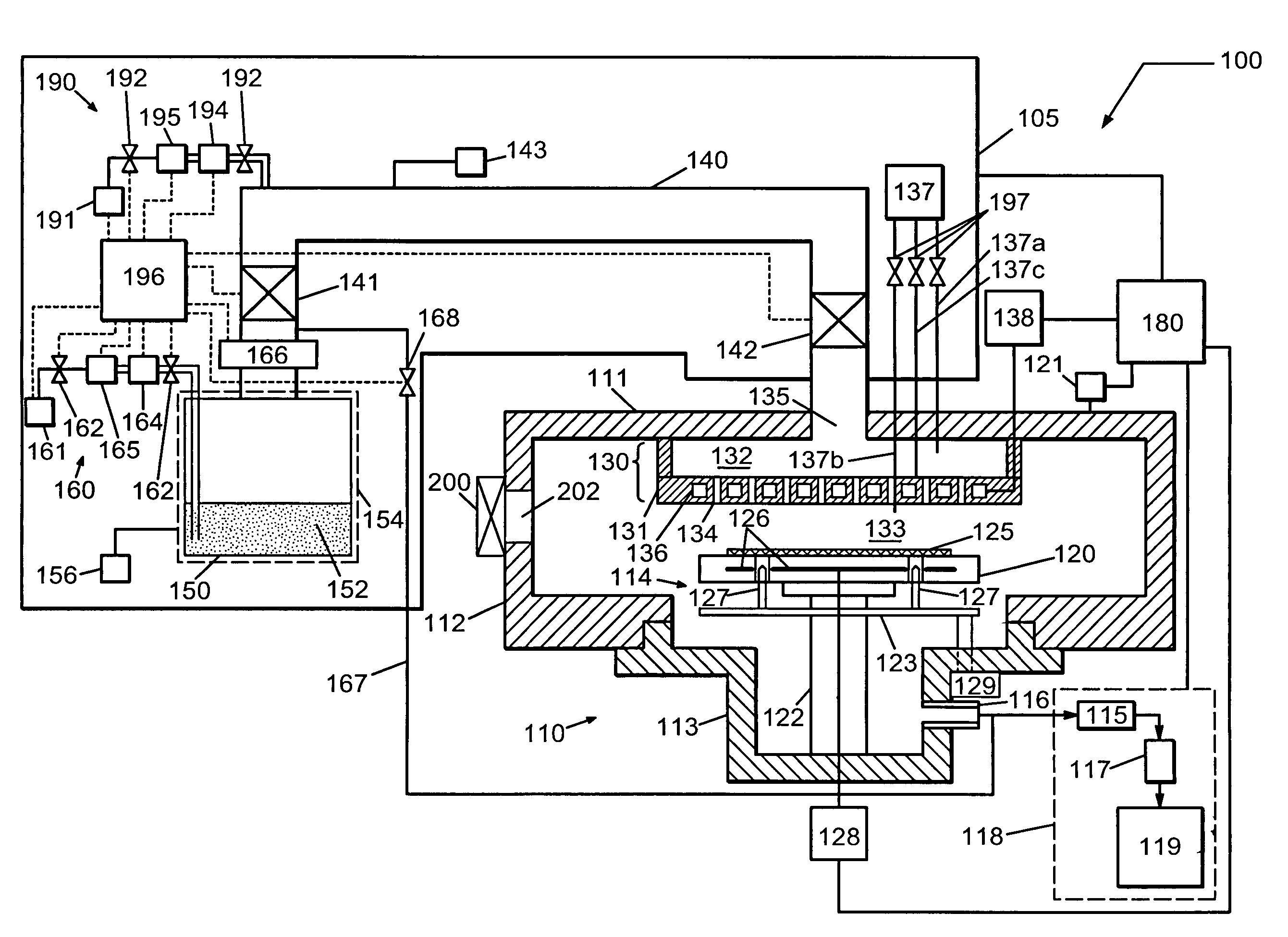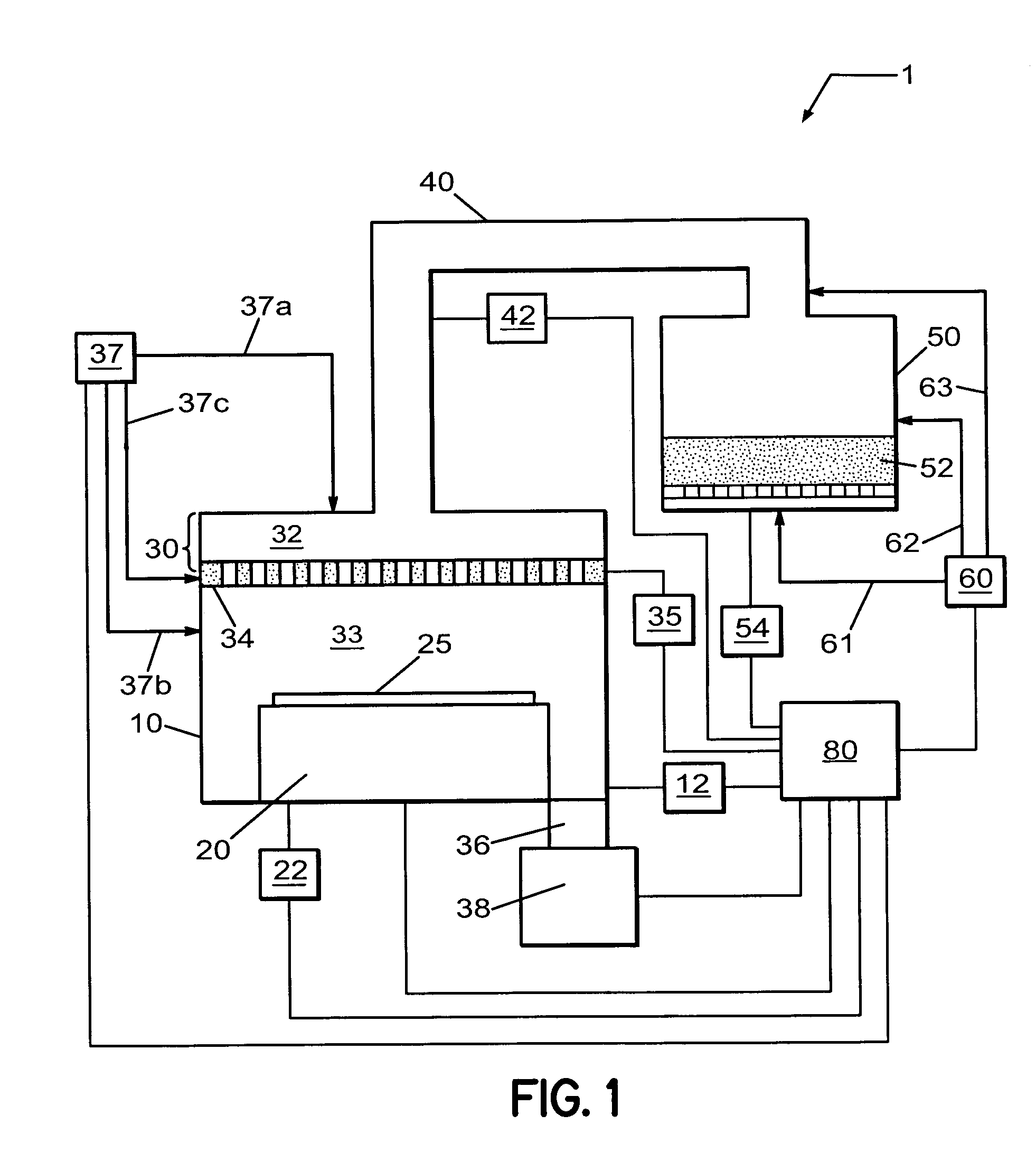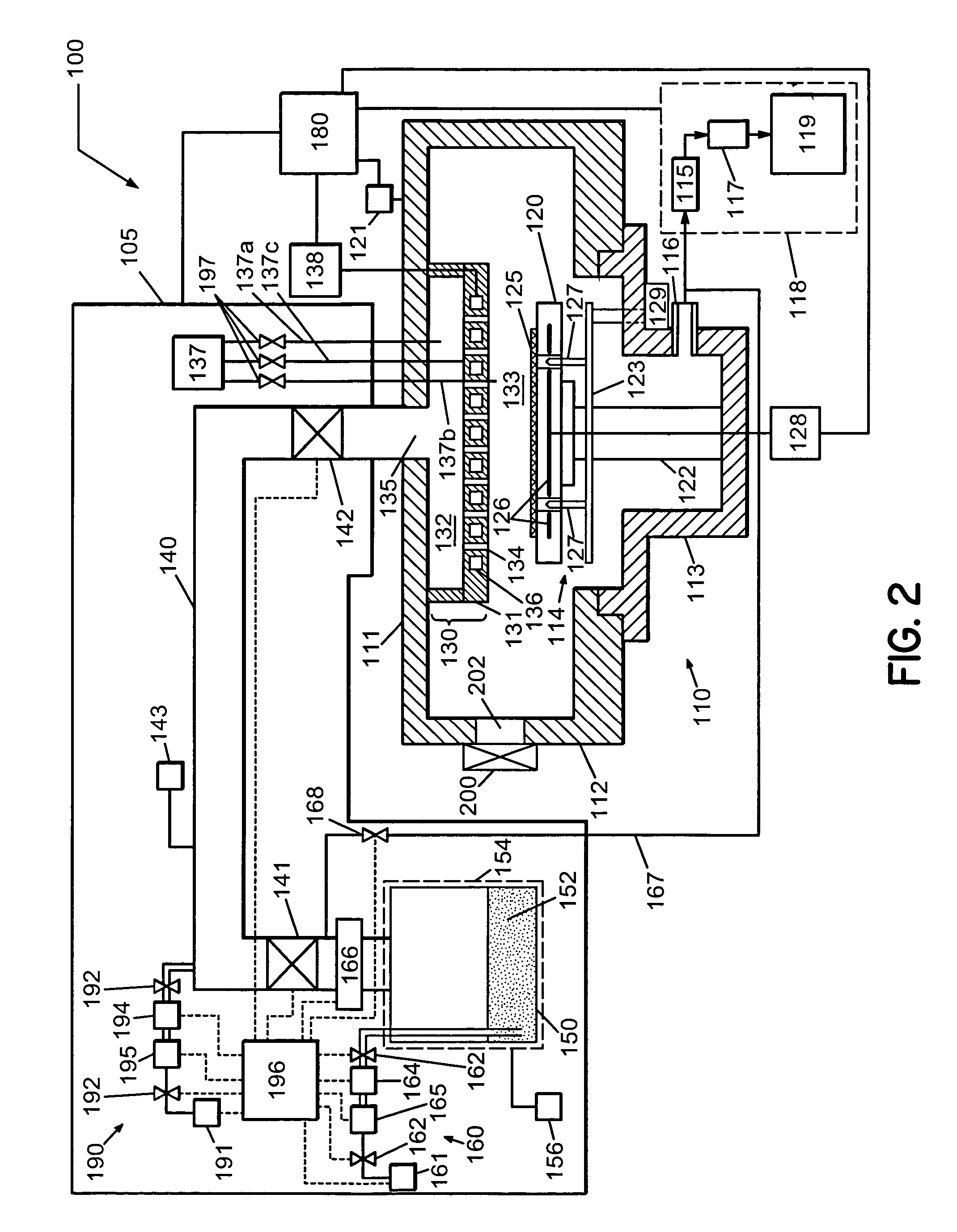Method and deposition system for increasing deposition rates of metal layers from metal-carbonyl precursors
a deposition system and metal-carbonyl technology, applied in the field of semiconductor processing, can solve the problems of increasing the formation of nodules at low deposition temperatures, and the increase of the (electrical) resistivity of the ru layer and poor surface morphology, so as to increase the evaporation temperature of the metal-containing precursor, increase the vapor pressure of the metal-carbonyl precursor
- Summary
- Abstract
- Description
- Claims
- Application Information
AI Technical Summary
Benefits of technology
Problems solved by technology
Method used
Image
Examples
Embodiment Construction
[0018]In the following description, in order to facilitate a thorough understanding of the invention and for purposes of explanation and not limitation, specific details are set forth, such as a particular geometry of the deposition system and descriptions of various components. However, it should be understood that the invention may be practiced in other embodiments that depart from these specific details.
[0019]Referring now to the drawings, wherein like reference numerals designate identical or corresponding parts throughout the several views, FIG. 1 illustrates a deposition system 1 for depositing a metal layer on a substrate from a metal-carbonyl precursor according to one embodiment. The deposition system 1 comprises a process chamber 10 having a substrate holder 20 configured to support a substrate 25, upon which the metal layer is formed. The process chamber 10 is coupled to a metal precursor evaporation system 50 via a vapor precursor delivery system 40.
[0020]The process cha...
PUM
| Property | Measurement | Unit |
|---|---|---|
| temperature | aaaaa | aaaaa |
| temperature | aaaaa | aaaaa |
| temperature | aaaaa | aaaaa |
Abstract
Description
Claims
Application Information
 Login to View More
Login to View More - R&D
- Intellectual Property
- Life Sciences
- Materials
- Tech Scout
- Unparalleled Data Quality
- Higher Quality Content
- 60% Fewer Hallucinations
Browse by: Latest US Patents, China's latest patents, Technical Efficacy Thesaurus, Application Domain, Technology Topic, Popular Technical Reports.
© 2025 PatSnap. All rights reserved.Legal|Privacy policy|Modern Slavery Act Transparency Statement|Sitemap|About US| Contact US: help@patsnap.com



